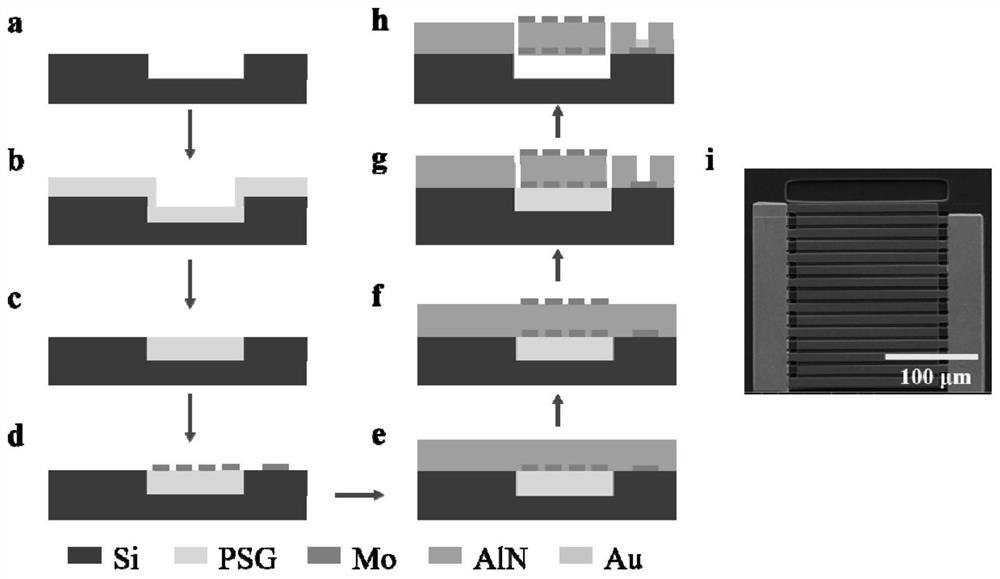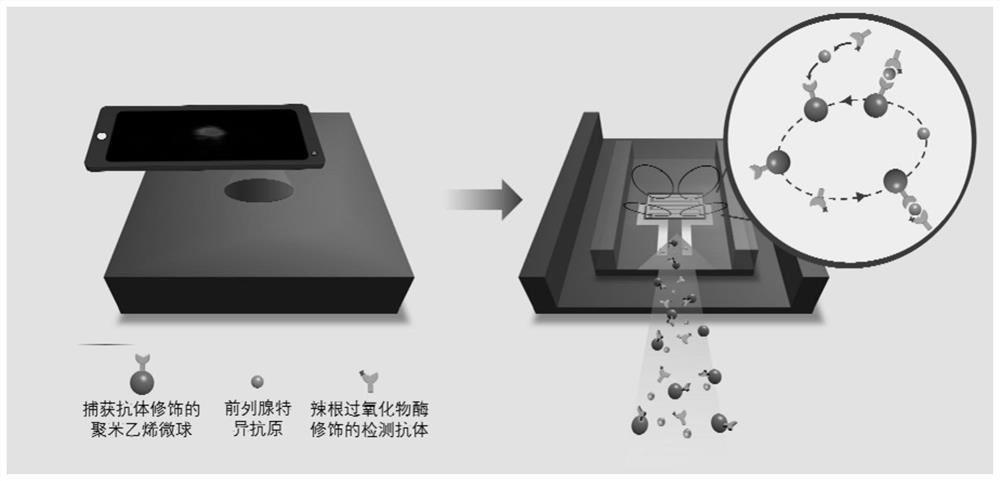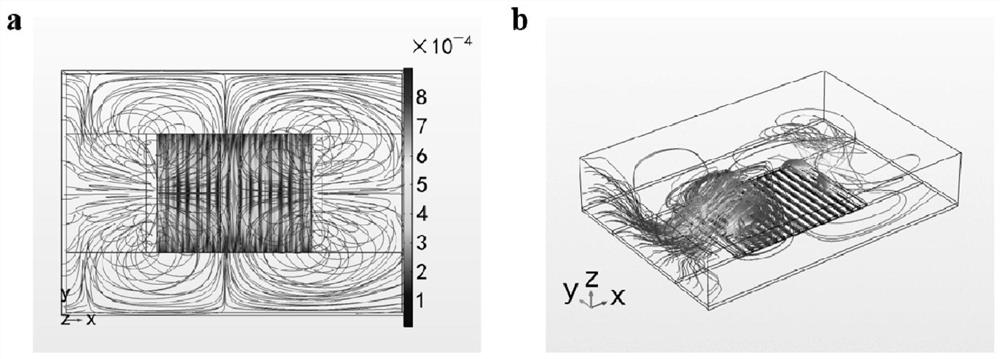Method for detecting biomolecules by using Lamb wave resonator and microfluidic device
A microfluidic and resonator technology, applied in the field of detection of biological substances, can solve the problems of poor specificity, high voltage, easy blocking and so on
- Summary
- Abstract
- Description
- Claims
- Application Information
AI Technical Summary
Problems solved by technology
Method used
Image
Examples
Embodiment 1
[0083] Preparation of microfluidic channel and Lamb wave resonator (Lamb Wave Resonator, LWR):
[0084] Manufacturing process of Lamb wave resonator based on CMOS compatible process
[0085] figure 1 Schematic diagram of the manufacturing process. First, the silicon substrate is etched by reactive ion etching, and an air cavity ( figure 1 a). Afterwards, phosphosilicate glass (PSG) used as a sacrificial layer was deposited on the substrate using chemical vapor deposition (CVD) ( figure 1 b). After planarization by chemical mechanical polishing (CMP) ( figure 1 c), followed by step-by-step deposition of the bottom electrode (200nm Mo film) on the substrate ( figure 1 d), the piezoelectric layer (450nm AlN film) ( figure 1 e) and the top electrode (200nm Mo film) ( figure 1 f). Then, based on Cl 2 plasma etching and potassium hydroxide wet etching to etch the AlN film ( figure 1 g). Afterwards, Au was deposited by evaporation and partially removed by exfoliation to f...
Embodiment 2
[0091] In the specific implementation process of this embodiment, a microfluidic device is provided, which can be used to detect the particle-target biological substance complex in the sample.
[0092] The method of the present invention involves adopting a microfluidic device with a Lamb wave resonator, converging the particles combined with the target biological substance into the swirling flow generated by the bulk acoustic wave emitted by the Lamb wave resonator in the fluid, realizing the control of the Enrichment and detection of biological substances and detectable labels thereon. figure 2It is a schematic diagram of an exemplary application of the method and microfluidic device of the present invention. The figure on the left shows: a Lamb wave bulk acoustic resonator is set at the bottom of the microchannel of the microfluidic device (top not shown); PS microspheres and PSA functionalized with capture antibodies are introduced from the entrance of the microchannel. ...
Embodiment 3
[0105] Materials and Experiments
[0106] The method of the present invention involves the specific binding of particle-ligand-target substance. In the exemplary embodiment of the present application, one of the target substances is prostate specific antigen (PSA), and its ligand is an anti-PSA antibody. PSA or its antibodies were labeled with different fluorescent signals, respectively.
[0107] In the examples of this application, commercially available polystyrene (PS) microspheres were used as particles. Label PS microspheres with fluorophores or protein moieties.
[0108] Relevant materials include:
[0109] FITC-labeled polystyrene particles were purchased from Shanghai Aladdin Industrial Corporation (Shanghai, China);
[0110] Prostate-specific antigen (PSA), capture antibody (mouse anti-PSA antibody, primary antibody, Ab1) and detection antibody (horseradish peroxidase-modified anti-PSA antibody, secondary antibody, Ab2) were purchased from Linc-bio (Shanghai) , w...
PUM
 Login to View More
Login to View More Abstract
Description
Claims
Application Information
 Login to View More
Login to View More - R&D
- Intellectual Property
- Life Sciences
- Materials
- Tech Scout
- Unparalleled Data Quality
- Higher Quality Content
- 60% Fewer Hallucinations
Browse by: Latest US Patents, China's latest patents, Technical Efficacy Thesaurus, Application Domain, Technology Topic, Popular Technical Reports.
© 2025 PatSnap. All rights reserved.Legal|Privacy policy|Modern Slavery Act Transparency Statement|Sitemap|About US| Contact US: help@patsnap.com



